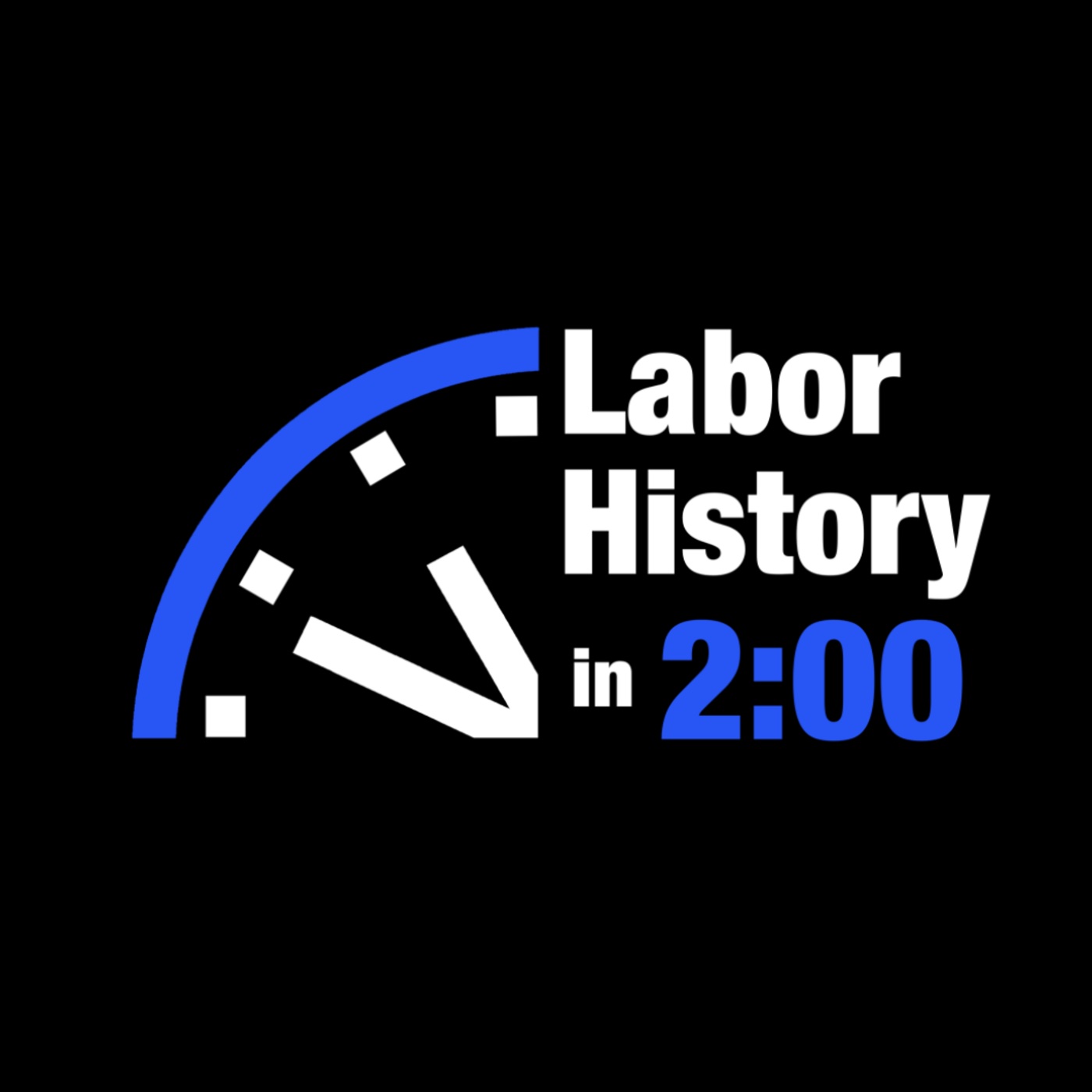Episodes

Sunday Oct 19, 2025
October 19 - In the Streets and at the Shareholder Meetings
Sunday Oct 19, 2025
Sunday Oct 19, 2025
On this day in Labor History the year was 1980. In what the Chicago Sun Times called it the “biggest labor management war of the last two decades.” The battle for union recognition at ten J.P. Stevens’s textile plants ended in victory.

Saturday Oct 18, 2025
October 18 - Walking in Their Shoes
Saturday Oct 18, 2025
Saturday Oct 18, 2025
On this day in Labor History, and we are going all the way back to 1648. More than a hundred years before the American Revolution, an early trade organization was founded in the Colony of Massachusetts. They called themselves the “Company of Shoemakers.”

Friday Oct 17, 2025
October 17 - The Making of a Monopoly
Friday Oct 17, 2025
Friday Oct 17, 2025
On this day in Labor History, the year was 1877. That was the day that John D. Rockefeller, and his company Standard Oil struck a deal with the Pennsylvania Railroad that would cement his monopoly on the nation’s oil refineries. In the early 1870s Rockefeller was building his oil empire out from its center in Cleveland, Ohio.

Thursday Oct 16, 2025
October 16 - Striking a Blow at Slave Labor
Thursday Oct 16, 2025
Thursday Oct 16, 2025
On this day in Labor History, the year was 1859. That was the day that abolitionist John Brown led a raid at the armory in Harpers Ferry, in what is now West Virginia. His goal was to strike a blow toward ending slavery.

Wednesday Oct 15, 2025
October 15 - Labor’s Magna Carta
Wednesday Oct 15, 2025
Wednesday Oct 15, 2025
On this day in Labor History, the year was 1914. That was the day that President Woodrow Wilson signed the Clayton Antitrust Act. The act also became known as Labor’s “Magna Carta.”

Tuesday Oct 14, 2025
October 14 - Labor Standing in Solidarity Against Nazis
Tuesday Oct 14, 2025
Tuesday Oct 14, 2025
On this day in Labor History, the year was 1933. That was the day the Executive Council of the American Federation of Labor decided to call for a boycott of Nazi Germany’s goods and services. Jewish labor leaders in the United States led the push for the boycott.

Monday Oct 13, 2025
October 13 - Delivering a Better Future
Monday Oct 13, 2025
Monday Oct 13, 2025
On this day in Labor History, the year was 2000. That was the day the newspaper carriers for the San Jose Mercury News ended their walkout. Eighty percent of the newspaper carriers were Vietnamese immigrants to the United States. Many were elderly, or recent immigrants with families.

Sunday Oct 12, 2025
October 12 - Bury Me With My Boys in Mt. Olive
Sunday Oct 12, 2025
Sunday Oct 12, 2025
Bury me with my boys in Mt. Olive, and let no traitor draw breath over my grave.” Such was the last wish of labor leader Mother Jones. She wanted her final resting to place to be alongside the coal miners who gave their lives in the struggle to bring fair wages and a safe working environment to Virden, Illinois.

Saturday Oct 11, 2025
October 11 - The Mother Jones Monument is Dedicated
Saturday Oct 11, 2025
Saturday Oct 11, 2025
On this day in Labor History the year was 1936. 50,000 people gathered in the small town of Mount Olive, in southern Illinois. They had come to commemorate a new memorial to renowned labor leader Mother Jones and the honor mine workers who had lost their lives. Five special trains and twenty-five Greyhound buses helped bring the crowd to the Union Miners Cemetery.

Friday Oct 10, 2025
October 10 - Murder in the Fields
Friday Oct 10, 2025
Friday Oct 10, 2025
On this day in Labor History the year was 1933. That was the day that forty armed cotton growers shot at a group of striking workers in the small town of Pixley, California. That year a wave of labor unrest had swept through the fields of California’s agriculture industry. Nearly 50,000 workers participated in strikes throughout the year.

